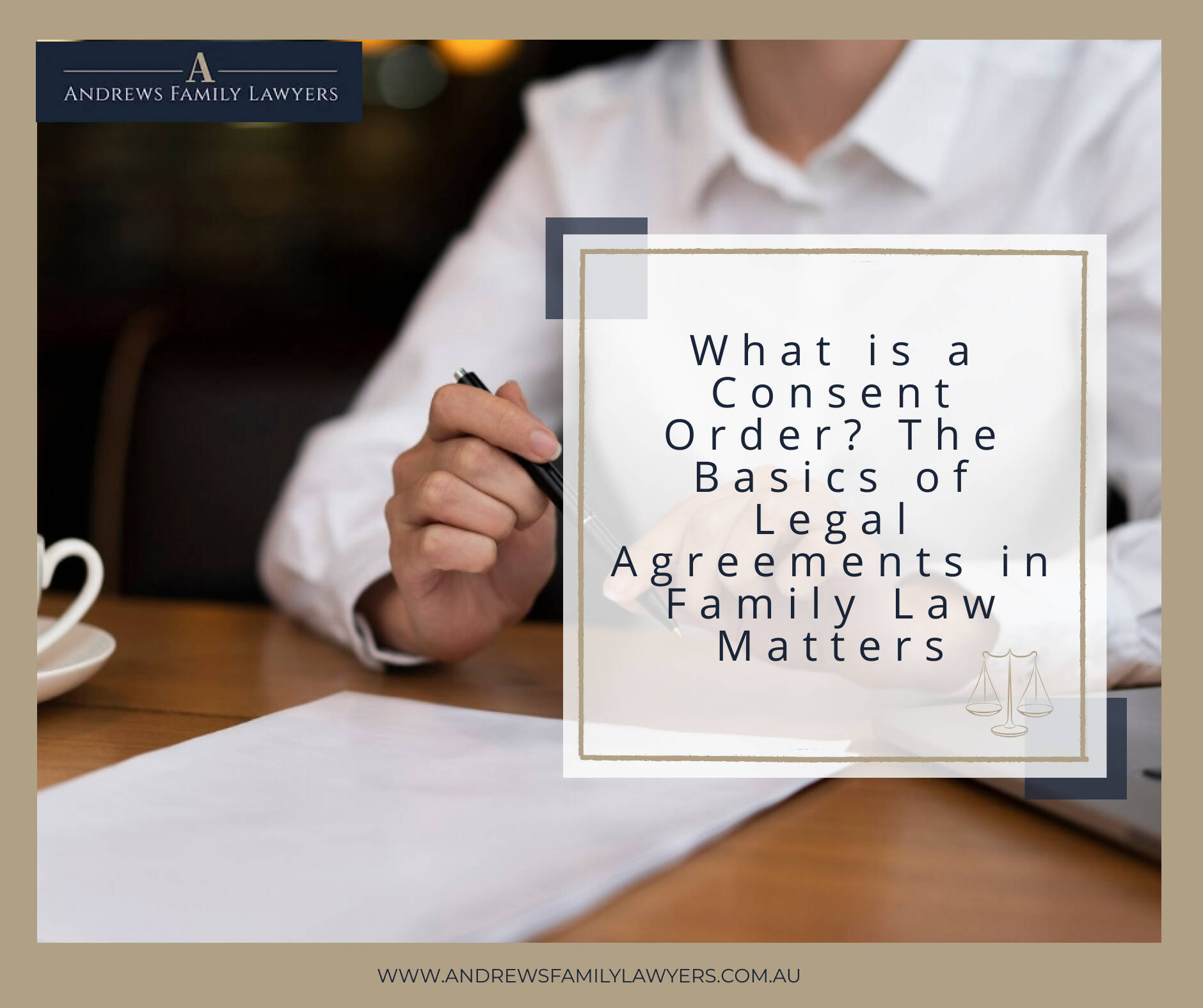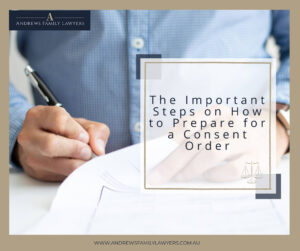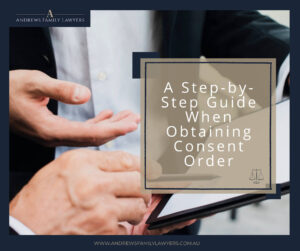Dealing with family law disputes can be challenging, and consent orders can be a helpful solution. But what are consent orders? They are a way to simplify the process and make things easier for everyone involved.
This guide will give you the basics to move forward and address your legal matters effectively and confidently.
What is a Consent Order?
A consent order is a legally binding agreement approved by the court to formalise matters related to property settlements, parenting arrangements, or spousal maintenance following separation or divorce.
By agreeing to the terms and conditions of the order outside of litigation, parties can avoid lengthy court battles, reduce costs, and maintain greater control over the outcomes of their disputes.
A clear understanding of what a consent order is and how it fits into the process of resolving family law disputes can help reduce the stress and uncertainties associated with such proceedings.

If you need help with consent orders, and other issues related to family law matters, Contact Andrews Family Lawyers to schedule a FREE consultation.
The Legal Framework for Consent Orders
Understanding the legislative foundations governing consent orders and their role in family law dispute resolution processes:
1. Family Law Act 1975: Consent orders are governed by the Family Law Act 1975, granting courts the authority to make orders with the agreement of the parties regarding children, property, or spousal maintenance matters.
2. Court approval: Although the terms of a consent order are agreed upon by the parties involved, the order must be submitted to and approved by the court to become legally binding.
3. Legally binding: Once approved by the court, consent orders have the same legal effect as court-imposed orders, meaning both parties must adhere to the agreed-upon terms or face potential legal consequences.
The Benefits of Consent Orders
Exploring the advantages of pursuing a consent order as opposed to engaging in potentially protracted litigation:
1. Cost savings: Consent orders can save parties substantial legal costs by avoiding court appearances and lengthy negotiations associated with litigation.
2. Time efficiency: As the parties agree upon the terms of the consent order, they can significantly reduce the time spent resolving their disputes compared to going through the court process.
3. Control over outcomes: Consenting parties can shape the terms of the agreement to suit their specific needs and circumstances, maintaining greater control over the outcome as opposed to relying on an imposed court decision.
4. Reduced conflict: Consent orders encourage cooperation and communication between parties, promoting a more amicable resolution and minimising conflict during the dispute resolution process.

The Process of Obtaining a Consent Order
An overview of the steps involved in drafting, negotiating, and lodging a consent order with the court:
Step 1: Negotiation and agreement
The parties must first negotiate and agree upon the terms of their consent order, often with the assistance of their respective legal representatives or through alternative dispute resolution methods such as mediation.
Step 2: Drafting the consent order
Once the terms have been agreed upon, consent orders must be drafted clearly and legally enforceable, typically by qualified legal practitioners.
Step 3: Lodging the consent order
Consent orders must be submitted to the court for approval and a signed Application for Consent Orders document. Parties should also include any supporting documents or evidence that may be relevant to their application.
Step 4: Court approval
Once lodged, the court will review the consent order to ensure the terms are just and equitable in property matters or in the child’s best interests regarding parenting arrangements. If the court is satisfied, it will approve and legally bind the consent order.
For a more detailed guide on the process of obtaining a consent order, check our guide here.
If you need help with consent orders, and other issues related to family law matters, Contact Andrews Family Lawyers to schedule a FREE consultation.
When Consent Orders May Not Be Appropriate?
Recognising specific circumstances where consent orders may not be the best option for resolving disputes:
1. High levels of conflict: Consent orders rely on agreement and cooperation between the parties. In highly acrimonious disputes, where communication has broken down, reaching an agreement may be challenging or impossible.
2. Domestic violence or abuse: In situations where there has been domestic violence or abuse, consent orders may not adequately protect the victim, and court intervention may be necessary to ensure their safety.
3. History of non-compliance: If one party has a history of non-compliance with previous orders or agreements, consent orders may not provide sufficient enforcement mechanisms, and litigation may be more appropriate.

Conclusion
Consent orders can be a powerful tool for resolving family law disputes in a more amicable and efficient manner, while empowering the parties involved to take control of their own outcomes.
By understanding the legal framework, recognising the benefits, and following best practices when obtaining a consent order, you can effectively navigate the family law dispute resolution process and protect your interests.
For personalised guidance and support navigating consent orders or any aspect of family law, the dedicated team at Andrews Family Lawyers is ready to help. With an emphasis on trust, open communication, and a supportive atmosphere, Brisbane’s top family law firm is committed to providing honest, practical advice tailored to your unique circumstances.
Contact us today for expert assistance in your family law journey.




